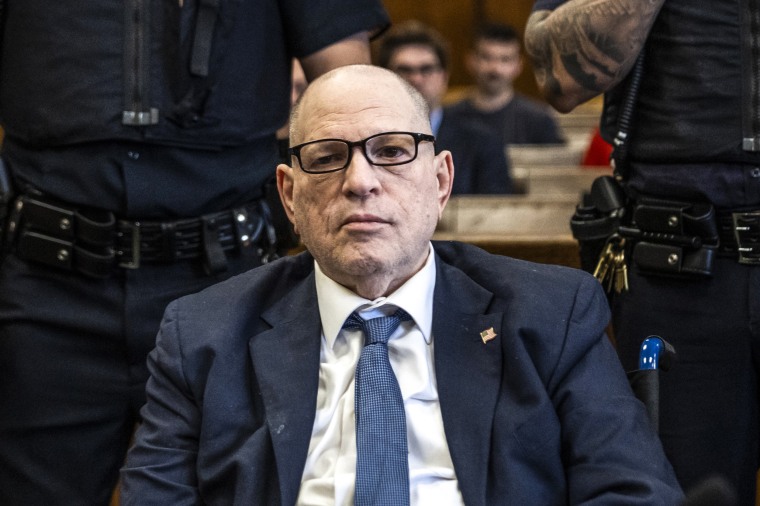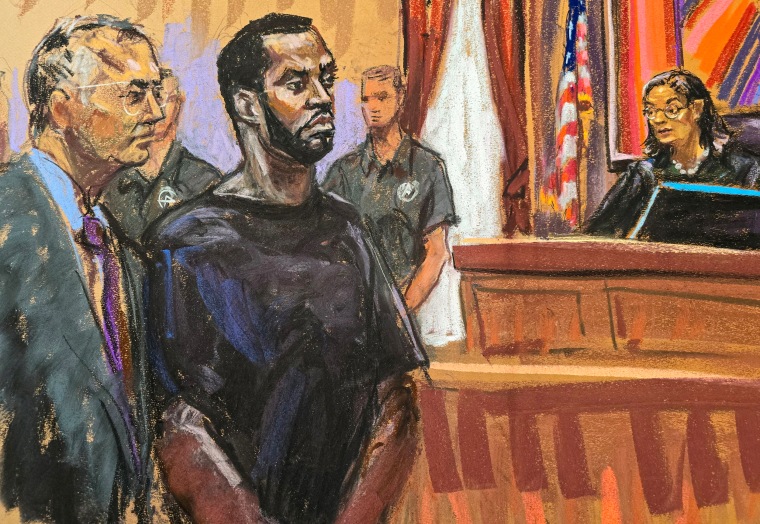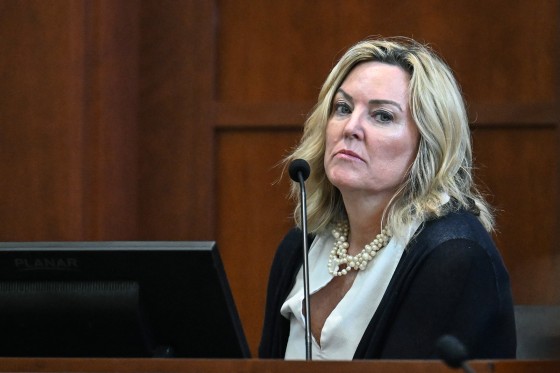In the coming weeks, Hollywood producer Harvey Weinstein and hip-hop mogul Sean “Diddy” Combs will go on trial in separate Manhattan courtrooms. The two defendants face different charges, different judges and different potential punishments.
But the proceedings will share at least one element in common: testimony from a clinical and forensic psychologist named Dawn Hughes.
The upcoming court cases will not be the first time Hughes has played a key role in dramatic legal sagas at the nexus of celebrity and power in the post-#MeToo era. In recent years, Hughes has taken the witness stand in other high-profile sexual misconduct trials that drew national attention.
When the NXIVM sex cult leader Keith Raniere went on trial in 2019, Hughes was on hand to explain to jurors how serial sexual abusers “gaslight” their victims. Two years later, Hughes testified at R. Kelly’s federal trial, telling jurors that the R&B singer had subjected victims to “psychological entrapment.”
Raniere was found guilty of racketeering, sex trafficking and possession of child pornography. R. Kelly was convicted in 2021 on one count of racketeering and eight counts of violating the Mann Act, a law that bars transporting people across state lines “for any immoral purpose.”
Hughes reached a new level of national awareness after testifying at the Johnny Depp-Amber Heard defamation trial. She took the stand in May 2022, during the second month of the case, and rendered her professional judgment in no uncertain terms.
“Ms. Heard was the victim of intimate partner violence,” Hughes told jurors inside a wood-paneled courtroom in Fairfax County, Virginia. She had based that assessment in part on the nearly 30 hours she spent evaluating Heard, Depp’s ex-wife. He vehemently denied her abuse claims.
Heard ultimately lost the defamation case. Yet the outcome of the Depp-Heard trial evidently did nothing to diminish Heard’s lawyer’s esteem for Hughes. In an interview, Elaine Charlson Bredehoft described Hughes as “an outstanding expert — probably the best expert I’ve had in 40 years of practice.”
“She’s extremely detailed. She’s extremely thorough. When she goes in to talk about any aspect of the case, she’s researched it thoroughly and she’s reviewed all the evidence,” Bredehoft added. “She’s able to talk to a jury in lay person’s terms … to be able to communicate some of these very difficult areas like domestic violence and rape.”
Hughes declined an interview request, saying in an email that she does “not speak with the press or media regarding ongoing matters.”

Hughes’ professional specialties include interpersonal violence, traumatic stress and anxiety disorders, according to her website. She keeps an independent practice in New York City, where she is a clinical assistant professor of psychology at NewYork-Presbyterian Hospital – Weill Cornell Medical College.
Elizabeth Geddes, a former federal prosecutor who was part of the legal team that secured a conviction against R. Kelly in Brooklyn in 2021, said Hughes is skilled at explaining to jurors what many perpetrators of sexual abuse have in common — as well as behaviors commonly exhibited by victims of sexual misconduct.
“Prosecutors rely on individuals like Dr. Hughes to help the jurors understand certain behaviors that may not come across at first glance,” such as abusers’ typical tactics for maintaining control over victims and why some victims do not immediately report assault or harassment to law enforcement officials, Geddes said.
Geddes added that Hughes’ extensive experience — something Geddes tapped as she sought to put R. Kelly behind bars — gives Hughes “a lot of credibility” with juries.
Combs’ lawyers have forcefully resisted prosecutors’ plans to call Hughes as an expert witness. In a 35-page motion filed earlier this month, the rapper’s team asked a judge to block her from taking the stand, arguing in part that her testimony would be “advocacy masquerading as expertise” and must be “excluded in its entirety.”
Sign up for the “Diddy on Trial” newsletter for key developments and analysis

Combs’ team’s motion includes the federal prosecutors’ expert witness disclosure filing, which says Hughes’ “testimony is expected to explain how the overarching dynamic of victimization is an abuse of power and control where the perpetrator engages in self-centered behavior to satisfy his own goals and desires regardless of the needs, wants, and well-being of the victim.”
Judge Arun Subramanian, who is overseeing the Combs case, said Friday he plans to rule on the scope of Hughes’ testimony next week.
In the Weinstein case, Judge Curtis Farber ruled that Hughes can provide testimony about the psychological and traumatic effects of rape and sexual assault.
It remains to be seen how Weinstein’s and Combs’ lawyers will attempt to puncture Hughes’ expertise as they defend their clients. Weinstein faces one count of rape in the third degree and two counts of criminal sexual act in the first degree. Combs faces charges of sex trafficking, racketeering and conspiracy to engage in prostitution.
Both men have pleaded not guilty and denied all allegations of sexual misconduct.
In at least one respect, Hughes is likely aware that testifying during megawatt trials might come at a cost. When she took the stand amid the Depp-Heard case, her WebMD profile was flooded with negative reviews. The social web was dominated by pro-Depp sentiment at the time, and the reviews accused Hughes of being biased against men.
She never publicly addressed the digital firestorm. The reviews were taken down after they became the subject of news reports.

